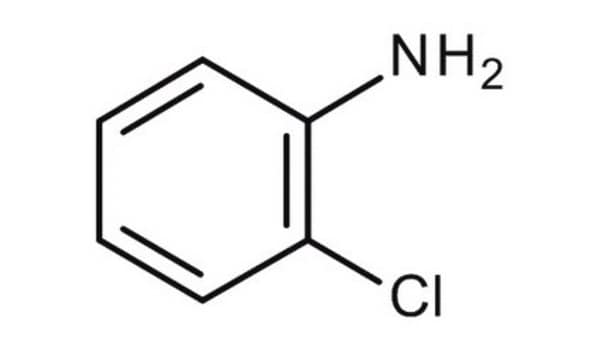8.05791
Mesityl oxide
for synthesis
Sinónimos:
Mesityl oxide, Isopropylideneacetone, 4-Methyl-3-penten-2-one
About This Item
Productos recomendados
vapor pressure
10.5 hPa ( 20 °C)
Quality Level
form
liquid
autoignition temp.
344 °C
potency
1120 mg/kg LD50, oral (Rat)
5150 mg/kg LD50, skin (Rabbit)
expl. lim.
1.4-10.1 % (v/v)
bp
130 °C/1013 hPa
mp
-59 °C
transition temp
flash point 28 °C
density
0.85 g/cm3 at 20 °C
storage temp.
2-30°C
SMILES string
O=C(C)C=C(C)C
InChI
1S/C6H10O/c1-5(2)4-6(3)7/h4H,1-3H3
InChI key
SHOJXDKTYKFBRD-UHFFFAOYSA-N
Application
- Nanomaterial synthesis: Mesityl oxide is employed in the chemical reactivity studies of the tryptophan/acetone/DMSO triad system, highlighting its potential applications in the innovative synthesis of nanomaterials, advancing green chemistry initiatives (Huang et al., 2023).
- Electrode modification for residue detection: Utilized in the detection of residual 2-Phenylphenol on lemon rind, mesityl oxide served as a solvent in the electrochemical deposition of polymeric stackings, illustrating its utility in enhancing analytical methods in food safety (Kiss et al., 2022).
- Organic sensing media: Mesityl oxide was a key solvent in the anodic polymerization process for sensing phenols, indicating its effective use in the development of sensing layers for environmental monitoring (Kiss et al., 2022).
- Pharmaceutical product quality control: Mesityl oxide is instrumental in the determination of acetone and related impurities in drug product intermediates, showing its critical role in ensuring pharmaceutical quality and compliance (Quirk et al., 2014).
Analysis Note
a-Mesityl oxide (GC, area%): ≥ 85.0 % (a/a)
Density (d 20 °C/ 4 °C): 0.853 - 0.856
Identity (IR): passes test
signalword
Danger
Hazard Classifications
Acute Tox. 3 Inhalation - Acute Tox. 4 Dermal - Acute Tox. 4 Oral - Eye Irrit. 2 - Flam. Liq. 3 - Skin Irrit. 2 - STOT SE 3
target_organs
Respiratory system
Storage Class
3 - Flammable liquids
wgk_germany
WGK 1
flash_point_f
87.8 °F - closed cup
flash_point_c
31 °C - closed cup
Certificados de análisis (COA)
Busque Certificados de análisis (COA) introduciendo el número de lote del producto. Los números de lote se encuentran en la etiqueta del producto después de las palabras «Lot» o «Batch»
¿Ya tiene este producto?
Encuentre la documentación para los productos que ha comprado recientemente en la Biblioteca de documentos.
Los clientes también vieron
Nuestro equipo de científicos tiene experiencia en todas las áreas de investigación: Ciencias de la vida, Ciencia de los materiales, Síntesis química, Cromatografía, Analítica y muchas otras.
Póngase en contacto con el Servicio técnico













